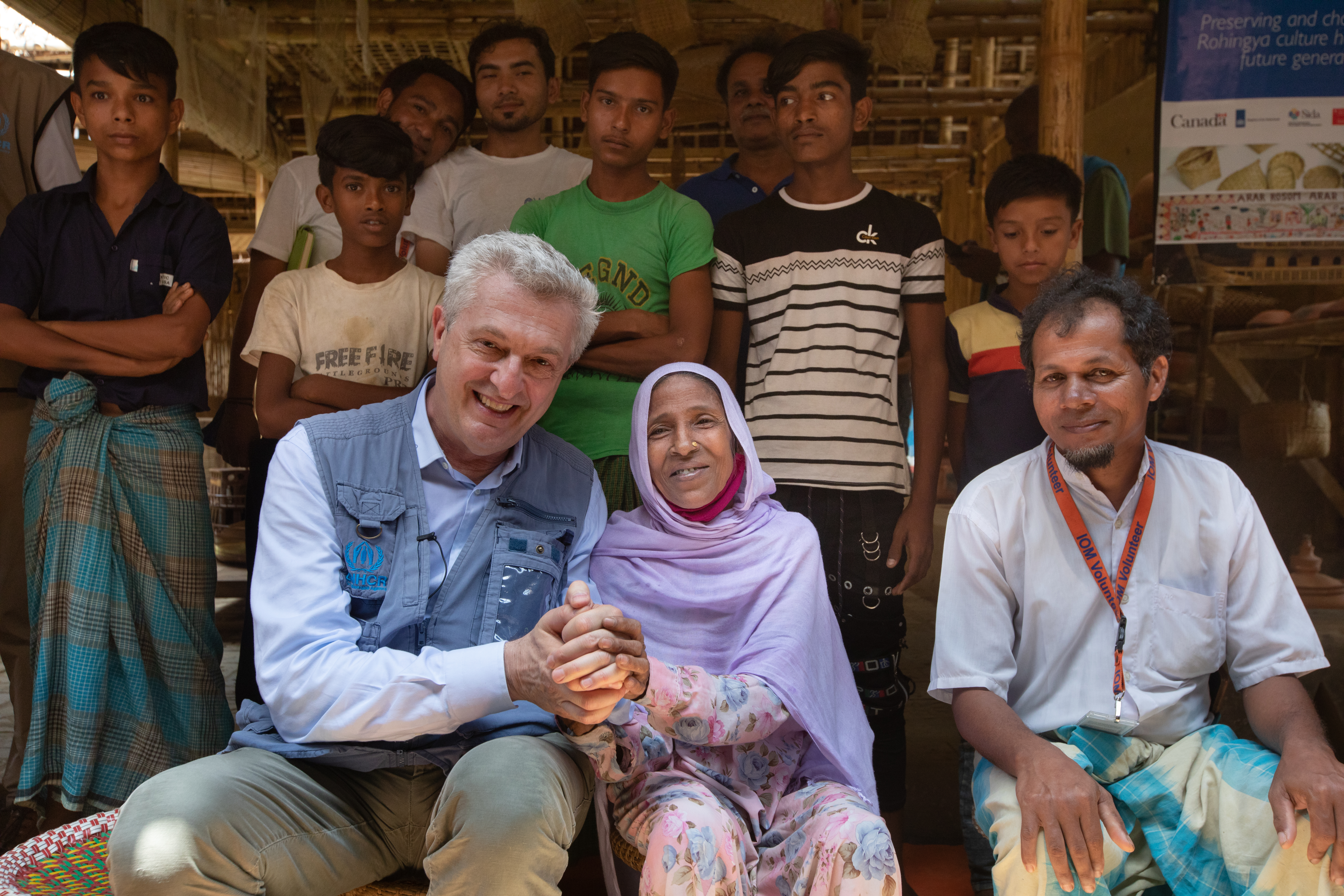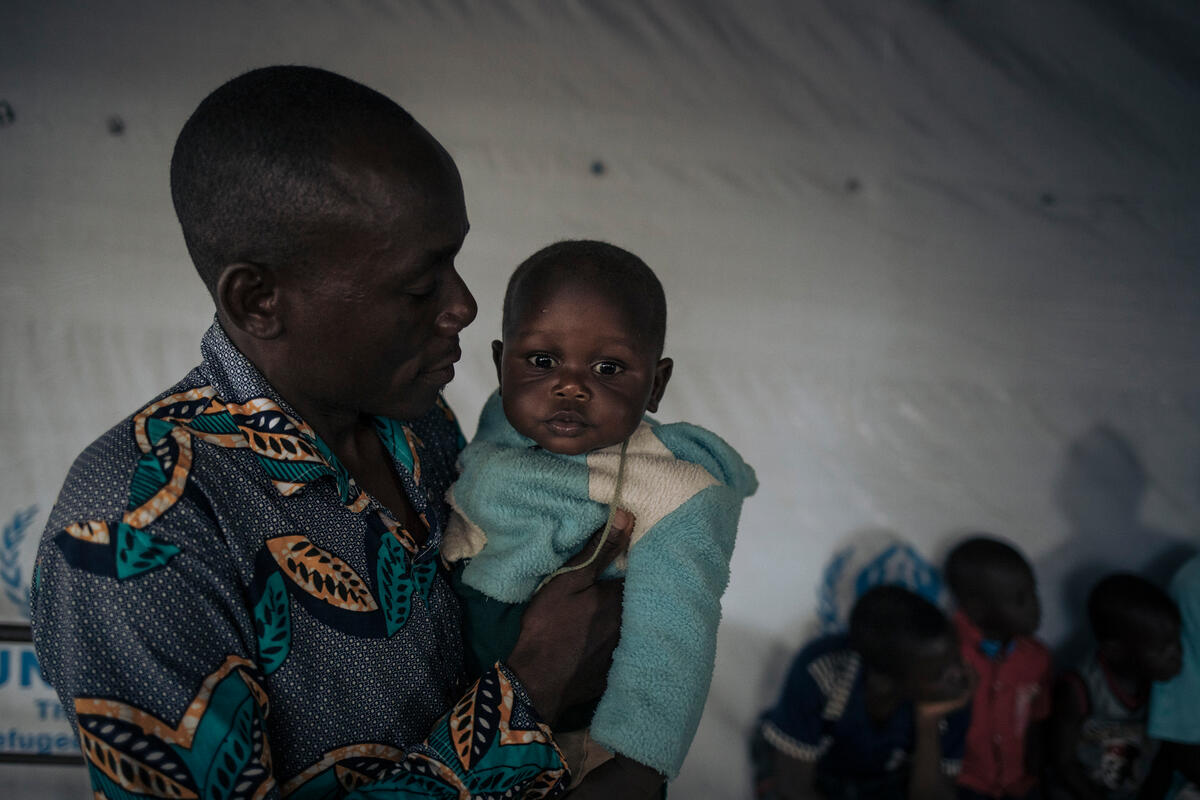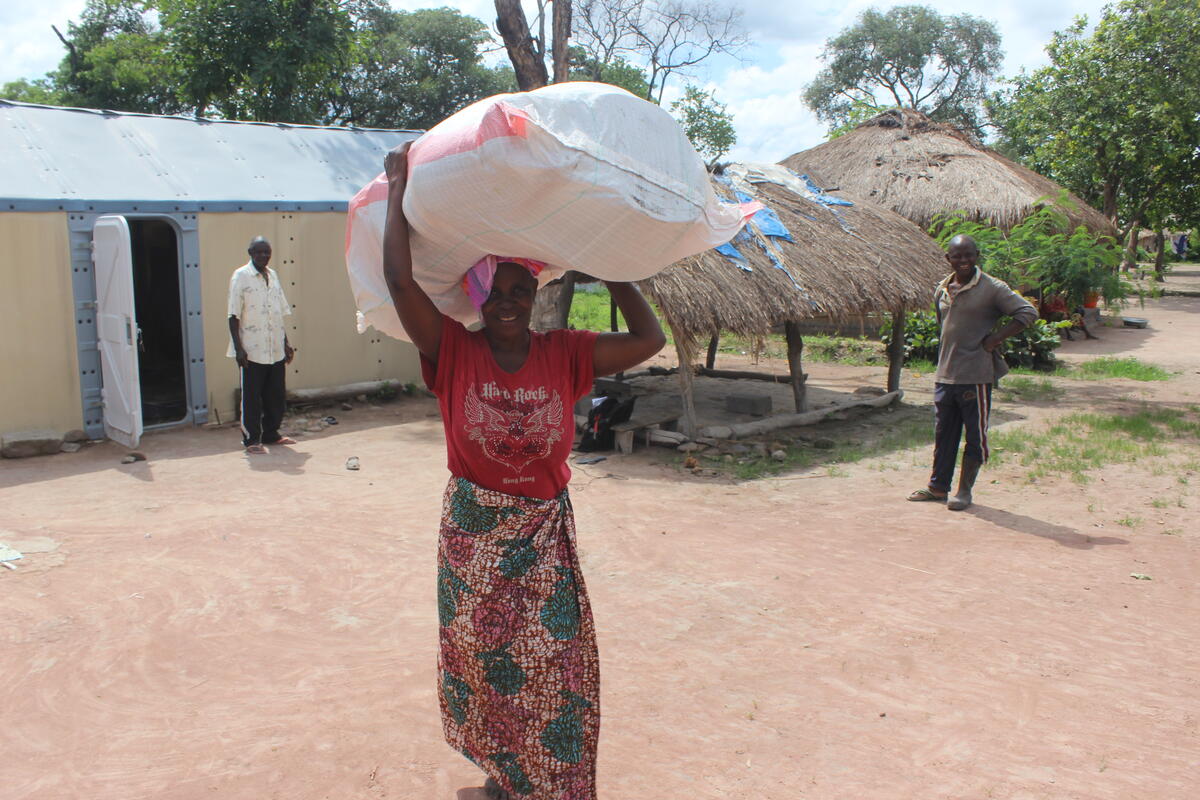Thousands of Central African refugees to return home from DRC
Thousands of Central African refugees to return home from DRC

UNHCR, the UN Refugee Agency, on Thursday (November 21) helped hundreds of refugees currently living in the Democratic Republic of Congo to return home to the Central African Republic - launching the first-ever voluntary repatriation programme from DRC for around 172,000 people forcibly displaced from CAR since 2013. Some 400 refugees and their belongings left in a convoy of four trucks and light vehicles from Mole refugee camp to Zongo in Sud Ubangi Province, northern DRC. They continued their journey by boat to Bangui, the capital of the Central African Republic.
The majority of the refugees had been living in DRC for several years, after violence in CAR forced them to flee and seek refuge in the neighbouring country.
The start of the voluntary repatriation programme follows a tripartite agreement signed by UNHCR and the governments of DRC and CAR in July 2019.
Since the agreement, some 4,000 people have signed up for the programme, indicating their wish to be helped to go home by the end of 2019. Although some refugees have been organizing their own returns, UNHCR plans to assist some 25,000 people by the end of 2020 through this gradual programme.
Returnees said better security in their areas of origin and the peace agreement between the CAR government and armed groups were the main reasons for their decision to end their exile.
In CAR, the refugees are returning to areas in Bangui and in the prefectures of Lobaye, Ombella M’poko, la Kemo, Nana Mambere, Mambere Kadei and Sangha-Mbaere, where the situation has improved over past two years.
Prior to their return, refugee representatives had visited their areas of origin, witnessing the presence of administrative and security authorities, and of humanitarian and development organizations.
Returning refugees are provided with transport and a return package consisted of cash and basic household items to help them initially once they are back in CAR.
UNHCR is also facilitating their reintegration by supporting the acquisition of civil documents and school certificates. We have built classrooms in some of the identified return areas.
As about half of the returning refugees are farmers, the CAR Government has provided arable land for them to grow their own food and provide for their families. UNHCR is also working with judicial authorities to facilitate the recovery of refugee properties.
However, the CAR needs more support in its efforts to improve access to basic healthcare, education and other social services.
Nearly 600,000 refugees from CAR are living in DRC and other neighbouring countries, while an equal number remains displaced inside its borders. Voluntary returns are based on individual refugee decisions and continued protection in hosting countries will be needed for those who do not feel safe to return home.
For more information on this topic, please contact:
- In Bangui, Djerassem Mbaiorem, [email protected], +236 72 30 12 88
- In Kinshasa, Fabien Faivre, [email protected], +243-825 443 419
- In Dakar, Romain Desclous, [email protected], +221 786 396 385
- In Pretoria, Hélène Caux, [email protected], +27 82 376 5190
- In Geneva, Babar Baloch, [email protected], +41 79 513 9549









